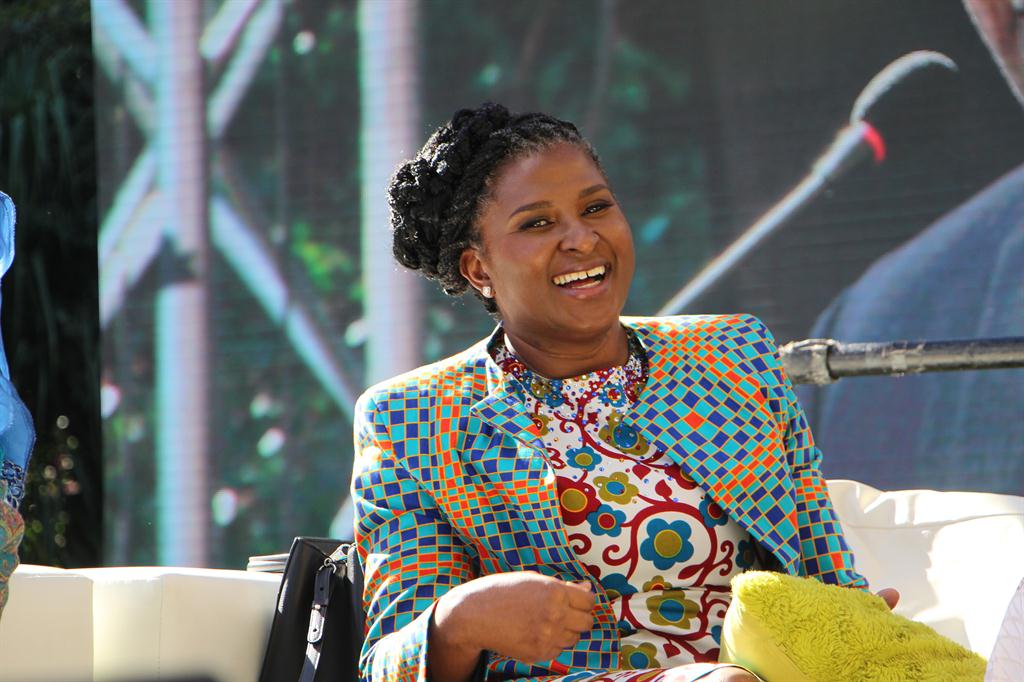Sodomy law's days numbered - Geingos
First Lady Monica Geingos says Namibia may soon follow the example of Botswana when it comes to removing anti-gay legislation, including the controversial sodomy law.
She was speaking at the official opening of The Journey dialogue, which is interrogating the country's strides in addressing human trafficking, drugs and alcohol abuse, abortion, child marriage and abuse, bullying, gender-based violence, rape, suicide and homelessness.
According to Geingos the sodomy law is the only law in existence in the country that discriminates against men.
“It is a little bit illogical to the point that nobody has been charged and convicted with sodomy in a very long time, to the point that we had put it on ice. There is a moratorium on this charge,” she said.
Geingos pointed out that Botswana decriminalised anti-gay laws on Monday, as well as other African countries, and that “Namibia will be next”. Dr Anthony Brown from the University of Johannesburg commended Geingos, saying her remarks show that she is in touch with the people. Brown made these remarks during a panel discussion on 'Unleashing the power of our collective: The journey towards realising human rights in Africa' and a discussion on compulsory heterosexuality.
He pointed out that it is unacceptable that laws made by “privileged white men” still control the bodies of black women years after colonialism.
He also emphasised that while strides are being made to protect the rights of women, transgender women and sex workers are still left behind. “Many of them cannot live equal and decent (lives) because we call them confused. Our sisters cannot legally and in a safe way terminate unwanted pregnancies.
“Backstreet abortions have cost the lives of many of them because these outdated laws call them murderers,” he said.
Brown added that sex workers' rights are still unrecognised and many are harassed and some even murdered. “Many call them prostitutes, a cast-out identity in the hegemonic spheres of our society,” he said. Ricardo Mensah from Out-Right Namibia (ORN) added that sexual minorities are tired of sharing and telling their stories; they now want real change and real action that will change their lives.
“The remarks by the first lady of Namibia were bolstering and it shows that there is impetus to move forward,” he said.
Edwina Husselman a local psychologist, said Namibia's human rights reputation is excellent, but sadly only on paper.
“The fact that we are not implementing these laws is holding the country back. And so the nation is segregated in various boxes,” she said.
JEMIMA BEUKES
She was speaking at the official opening of The Journey dialogue, which is interrogating the country's strides in addressing human trafficking, drugs and alcohol abuse, abortion, child marriage and abuse, bullying, gender-based violence, rape, suicide and homelessness.
According to Geingos the sodomy law is the only law in existence in the country that discriminates against men.
“It is a little bit illogical to the point that nobody has been charged and convicted with sodomy in a very long time, to the point that we had put it on ice. There is a moratorium on this charge,” she said.
Geingos pointed out that Botswana decriminalised anti-gay laws on Monday, as well as other African countries, and that “Namibia will be next”. Dr Anthony Brown from the University of Johannesburg commended Geingos, saying her remarks show that she is in touch with the people. Brown made these remarks during a panel discussion on 'Unleashing the power of our collective: The journey towards realising human rights in Africa' and a discussion on compulsory heterosexuality.
He pointed out that it is unacceptable that laws made by “privileged white men” still control the bodies of black women years after colonialism.
He also emphasised that while strides are being made to protect the rights of women, transgender women and sex workers are still left behind. “Many of them cannot live equal and decent (lives) because we call them confused. Our sisters cannot legally and in a safe way terminate unwanted pregnancies.
“Backstreet abortions have cost the lives of many of them because these outdated laws call them murderers,” he said.
Brown added that sex workers' rights are still unrecognised and many are harassed and some even murdered. “Many call them prostitutes, a cast-out identity in the hegemonic spheres of our society,” he said. Ricardo Mensah from Out-Right Namibia (ORN) added that sexual minorities are tired of sharing and telling their stories; they now want real change and real action that will change their lives.
“The remarks by the first lady of Namibia were bolstering and it shows that there is impetus to move forward,” he said.
Edwina Husselman a local psychologist, said Namibia's human rights reputation is excellent, but sadly only on paper.
“The fact that we are not implementing these laws is holding the country back. And so the nation is segregated in various boxes,” she said.
JEMIMA BEUKES





Comments
Namibian Sun
No comments have been left on this article